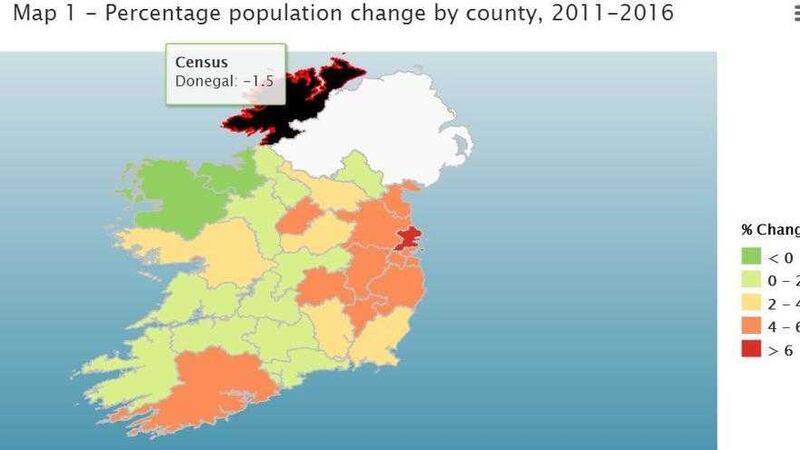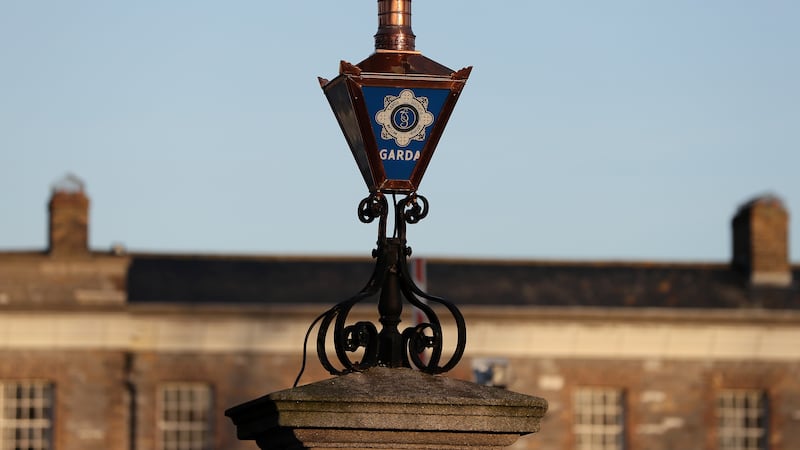IRELAND'S population has grown to more than 4.75 million - but Donegal has experienced the largest drop, new Census figures reveal.
The record of people and their lifestyles found only three counties experienced a fall in populations - with Donegal down by 2,382, the most significant fall as it suffers some of the worst emigration trends.
The population grew by 169,724 since 2011, an average of almost 34,000 a year, the report from the Central Statistics Office (CSO) showed.
The fastest-growing areas were greater Dublin, along with the commuter belts of Meath, Kildare and Laois and the cities of Cork and Galway.
The CSO said Donegal's population fell by 1.5 per cent, the largest measured drop in 2016, while Mayo and Sligo saw populations decrease less significantly by 231 and 36 respectively.
The fastest population growth over the last five years has been in the north Dublin area classed as Fingal, where there has been an 8.1 per cent increase.
Other regions which topped 5 per cent growth include Dun Laoghaire-Rathdown on the south side of the capital, Meath, Kildare, Cork and Galway cities, South Dublin and Laois.
The CSO estimated that net migration was -28,558, but it warned the number should be treated with caution until further analysis is done on the number of visitors to Ireland on Census night and Irish residents abroad at the time.
But it said the areas worst-hit by emigration were Donegal, Mayo, Co Galway and Limerick and South Dublin.
Census 2016's preliminary results also revealed a continued fall in the sex ratio trend as there are now 978 men for every 1,000 women.
Housing is a big factor in the first batch of results released by the CSO and it recorded almost 200,000 empty homes, not counting holiday homes and people temporarily away from the properties.
Carlow experienced the largest fall in the number of vacant dwellings from 3,202 in 2011 to 2,417 in 2016.
Leitrim had the highest rate in 2011 and it has fallen by 3.7 per cent in the last five years while Donegal, which had a rate of 28.4 per cent in 2011, had a fall of less than 1 per cent over the same period, although a large proportion of these properties will be holiday homes.
Homeless charity Peter McVerry Trust called for urgent action.
Spokesman Francis Doherty said the 198,358 vacant properties was unacceptably high.
"The level of vacant housing units underlines just how dysfunctional our housing system has become. In Dublin, we have around 4,000 individuals in homelessness yet the figures out today show over 36,000 vacant units across the region," he said.
"We should not tolerate a situation where there are thousands of homes lying idle, particularly during a housing and homeless emergency."
The preliminary figures on population also showed that the country should have more politicians.
The CSO said the number of people in the country for each of the 158 TDs in the Dail is now 30,114 but the constitutional limit is 30,000.








